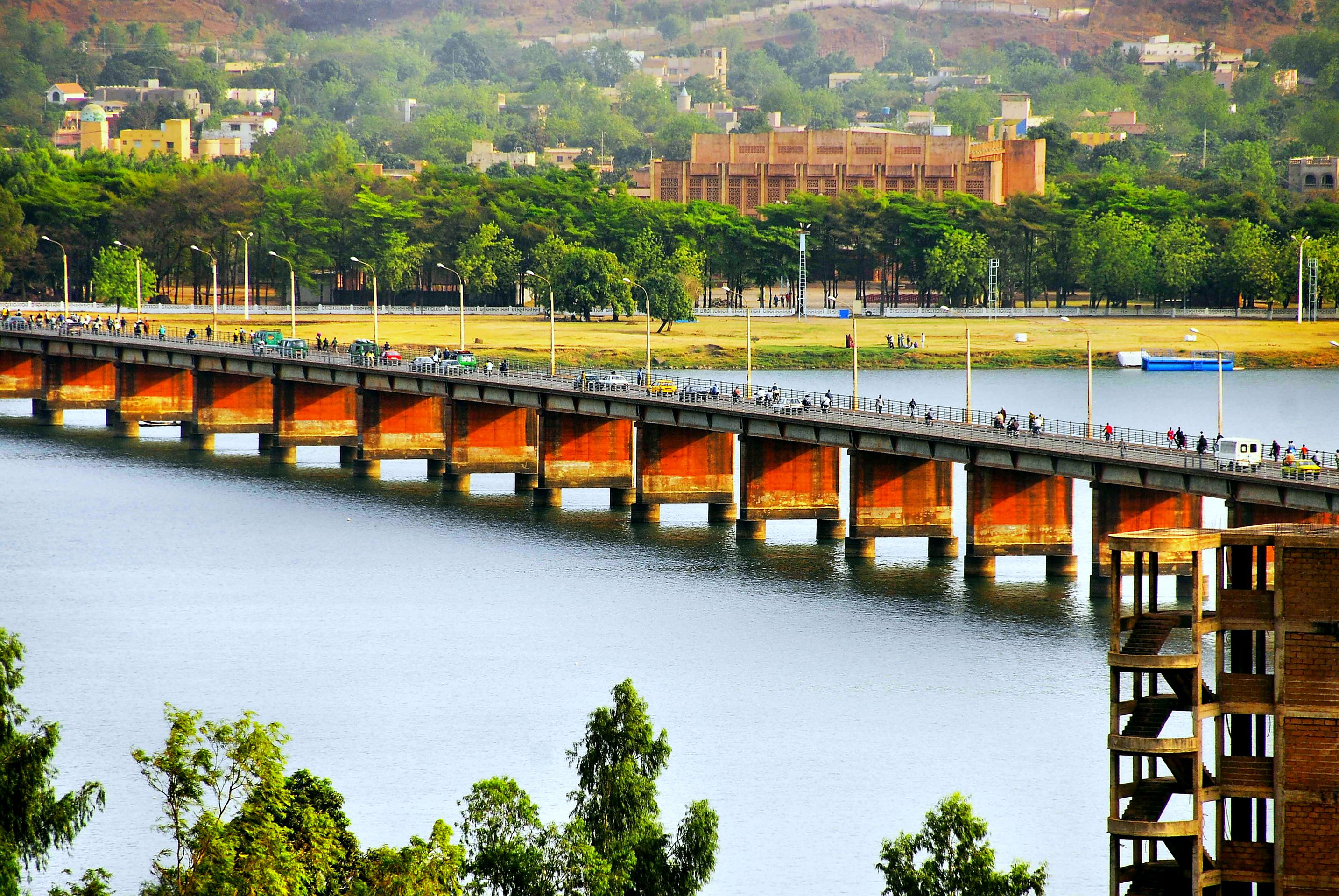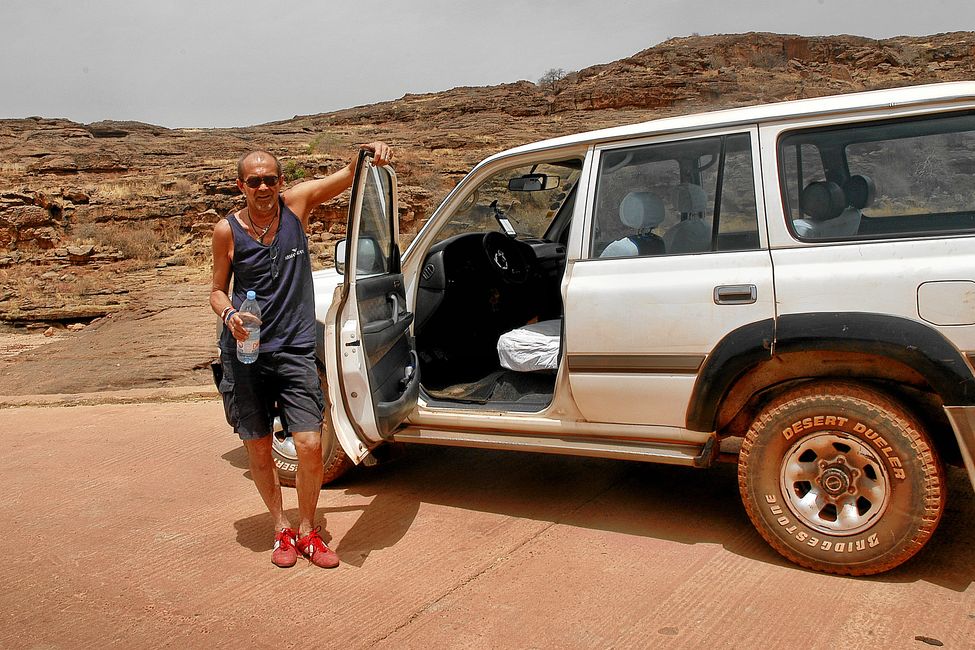Cap Coast Sklavenburg
게시됨: 13.05.2023
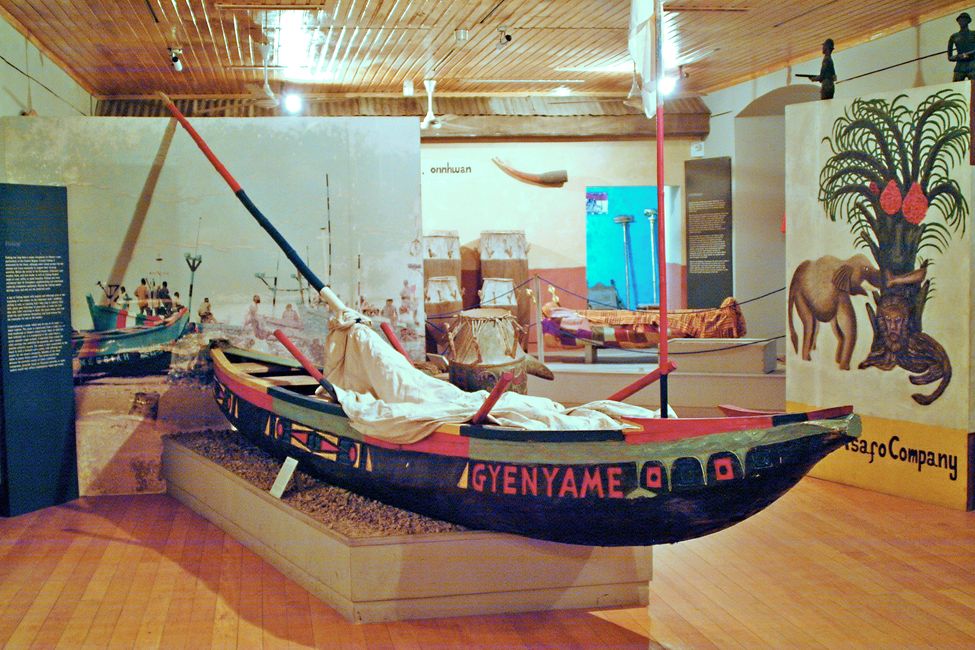
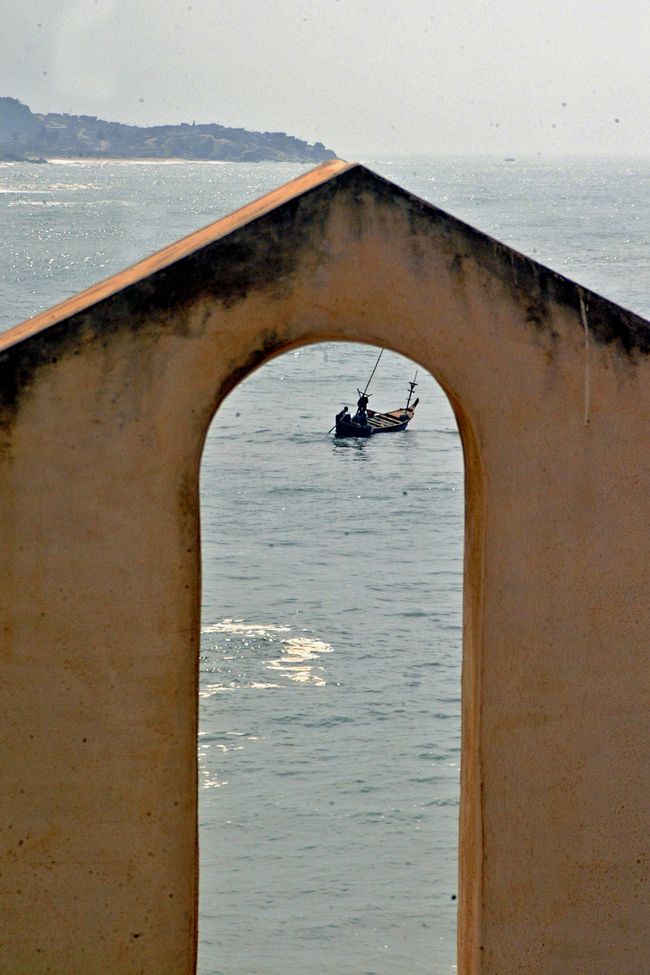
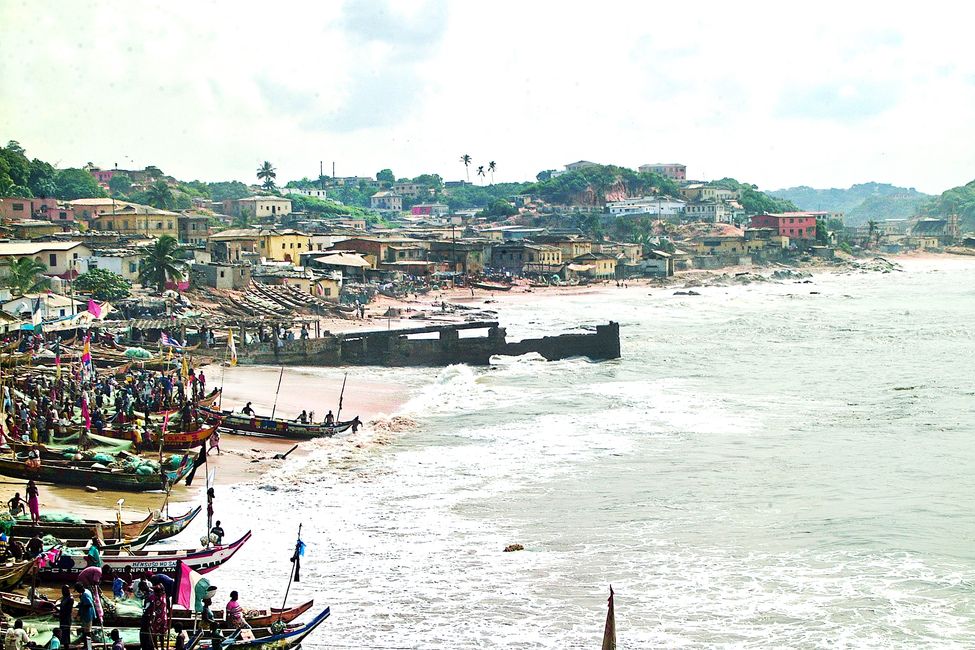
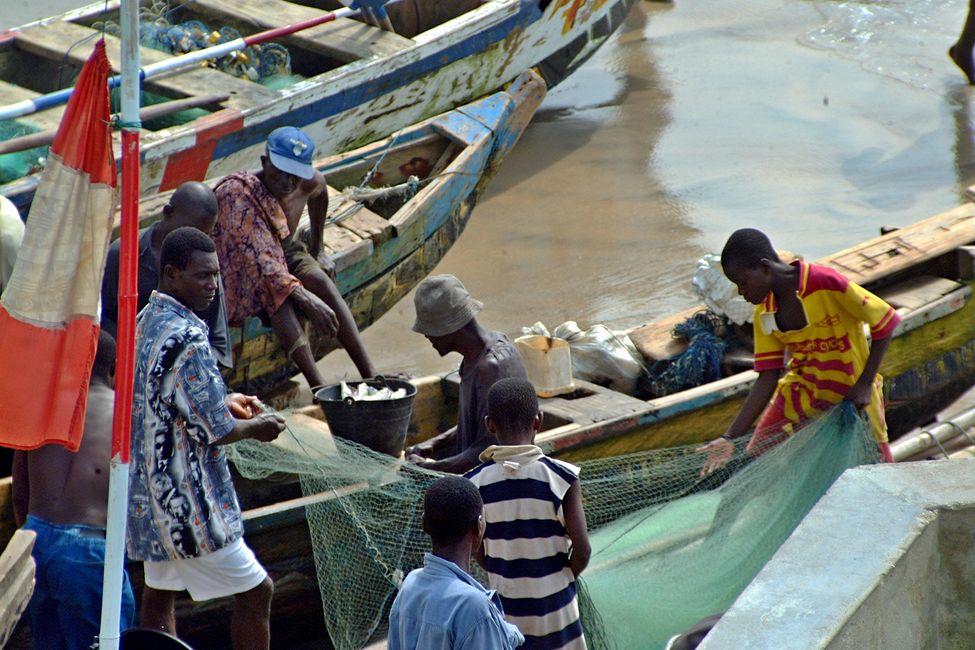
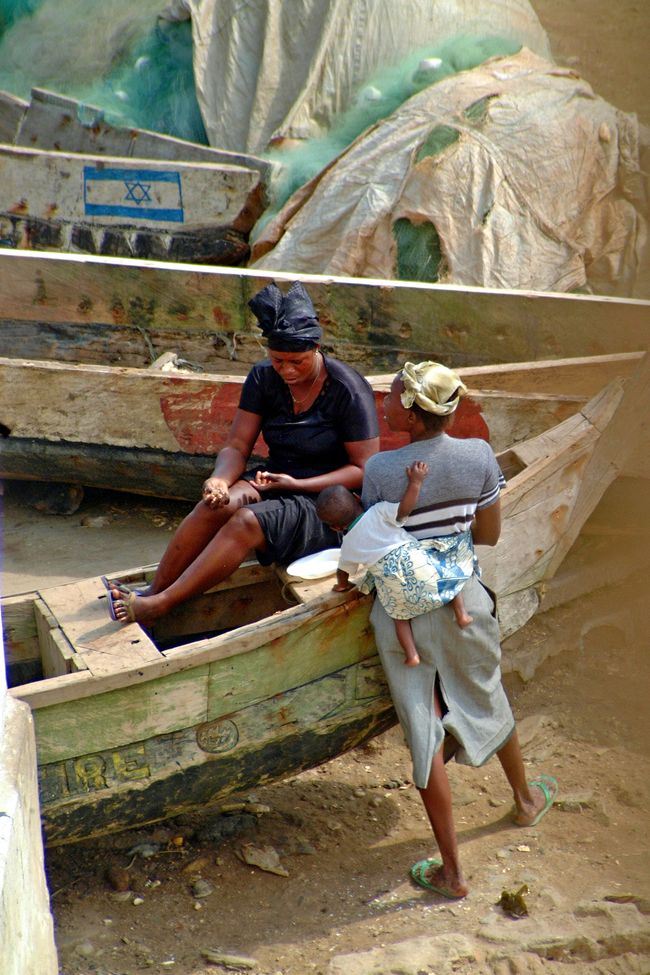
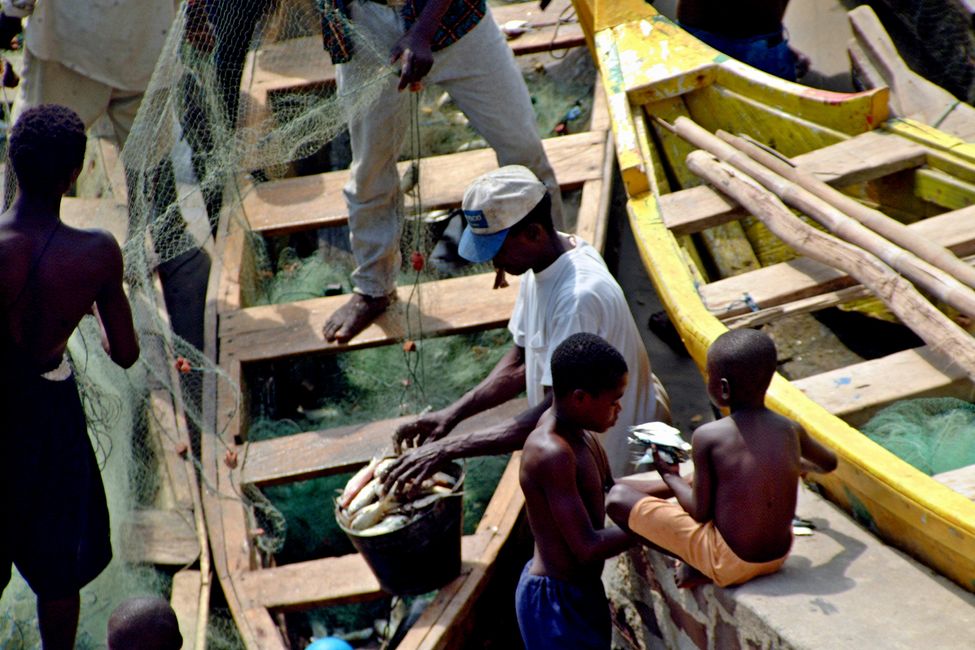
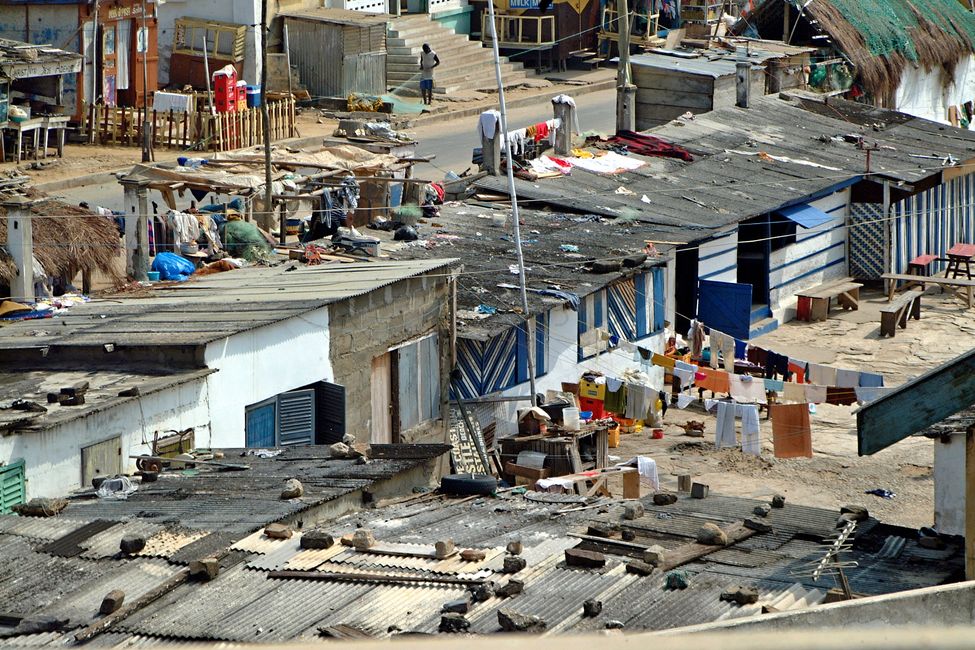
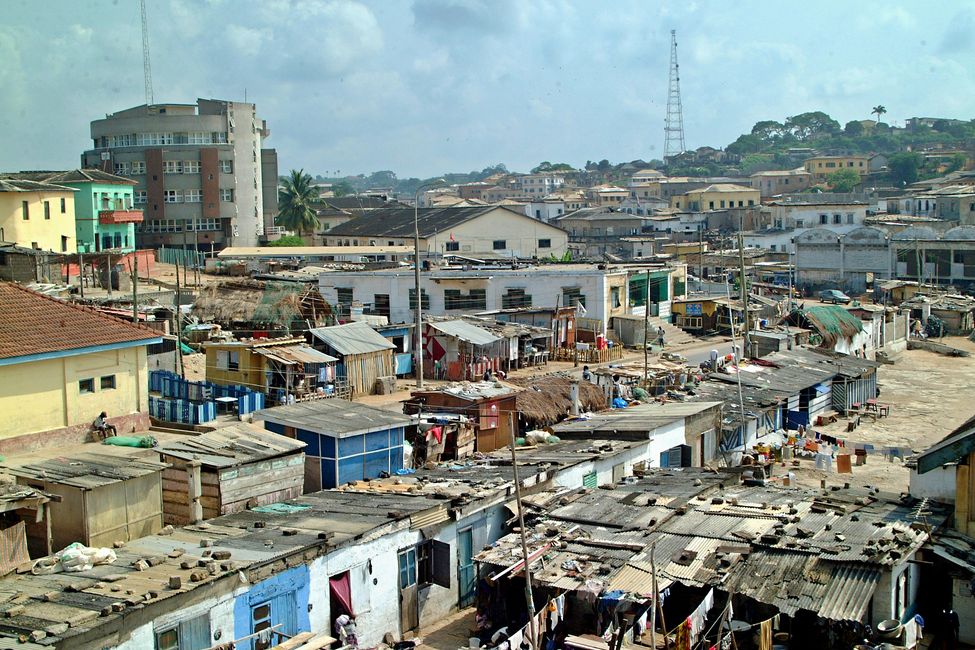
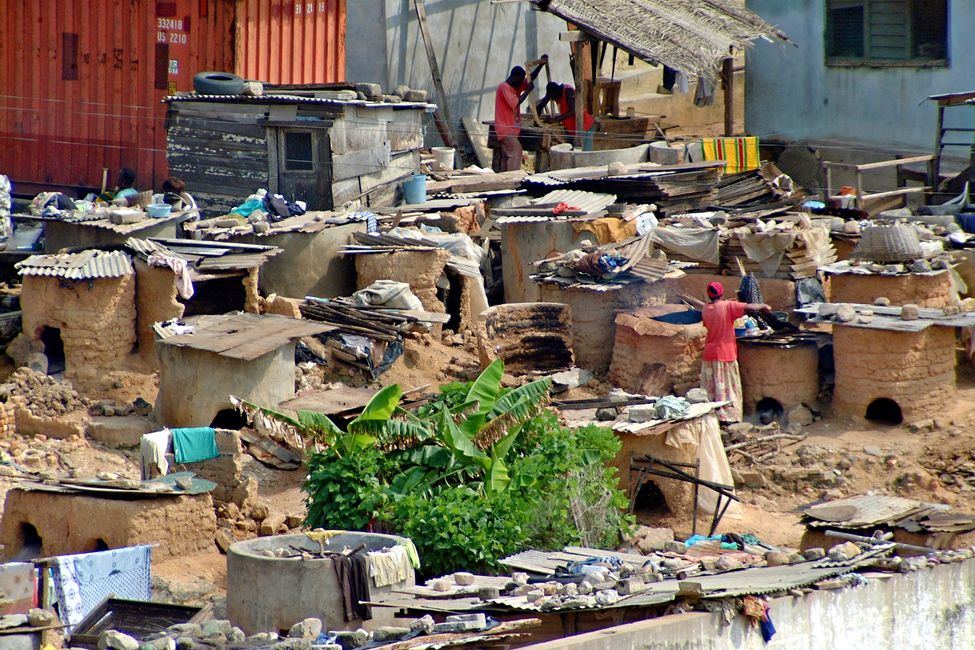
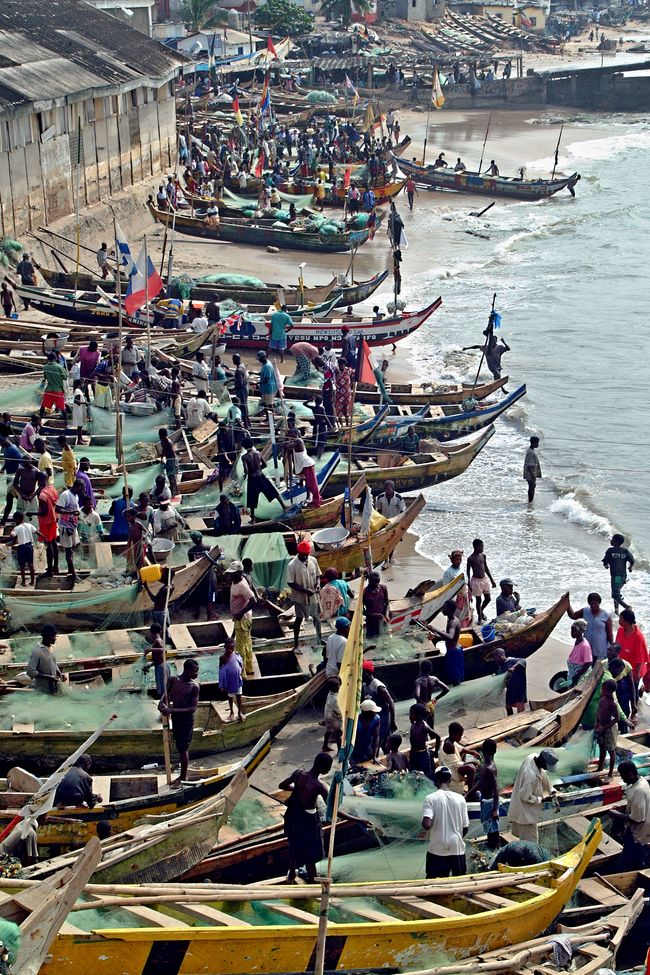
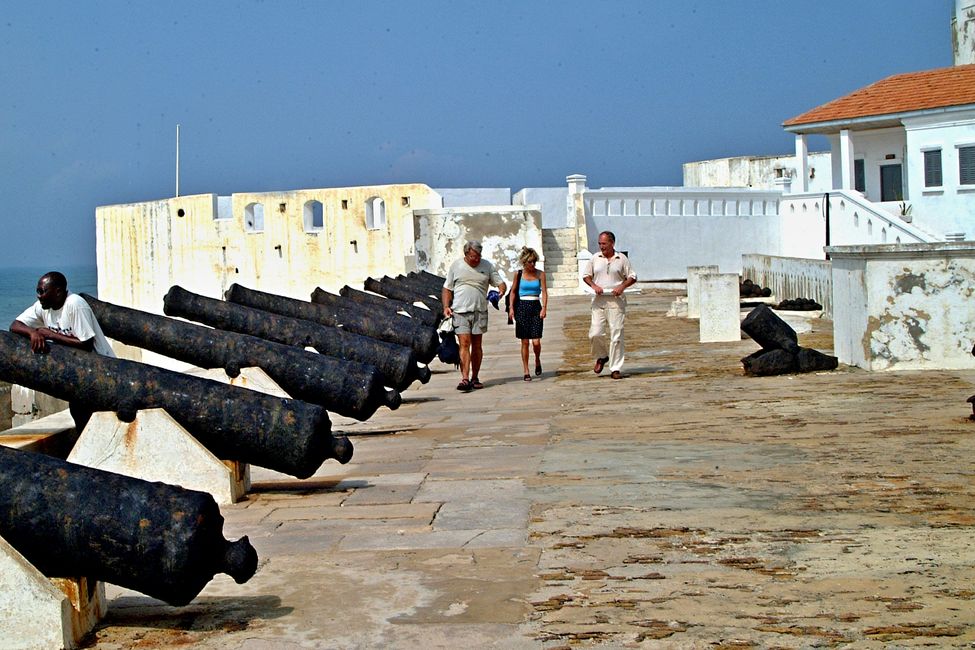
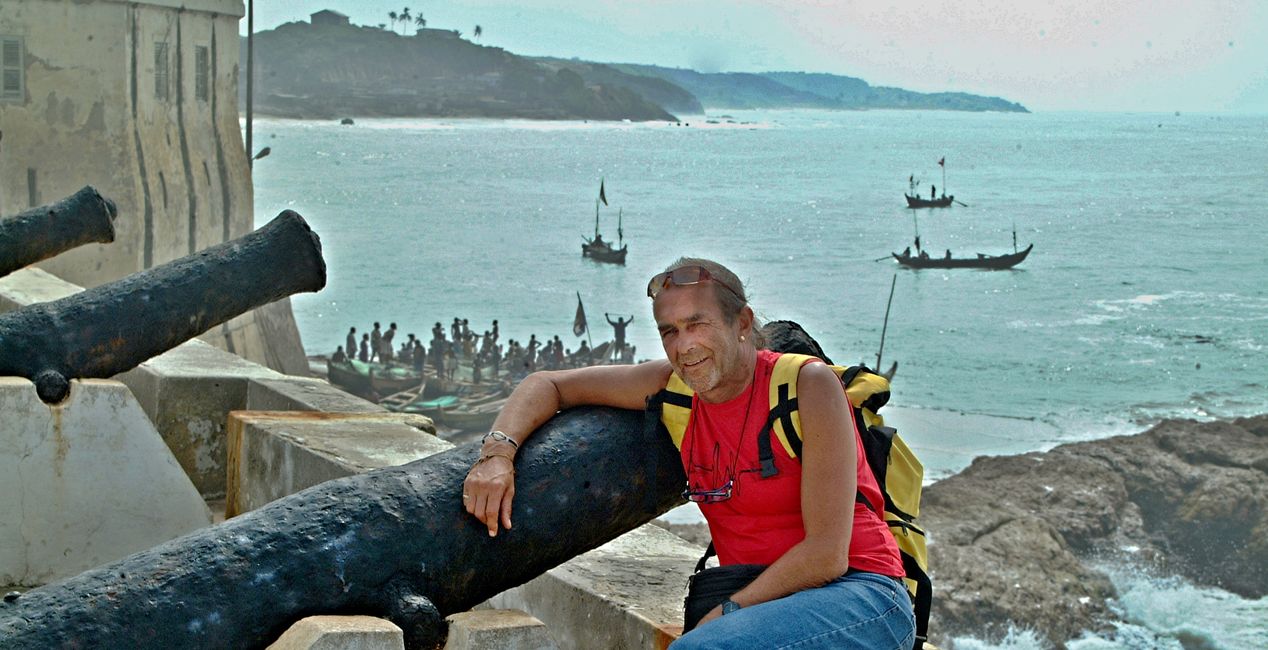
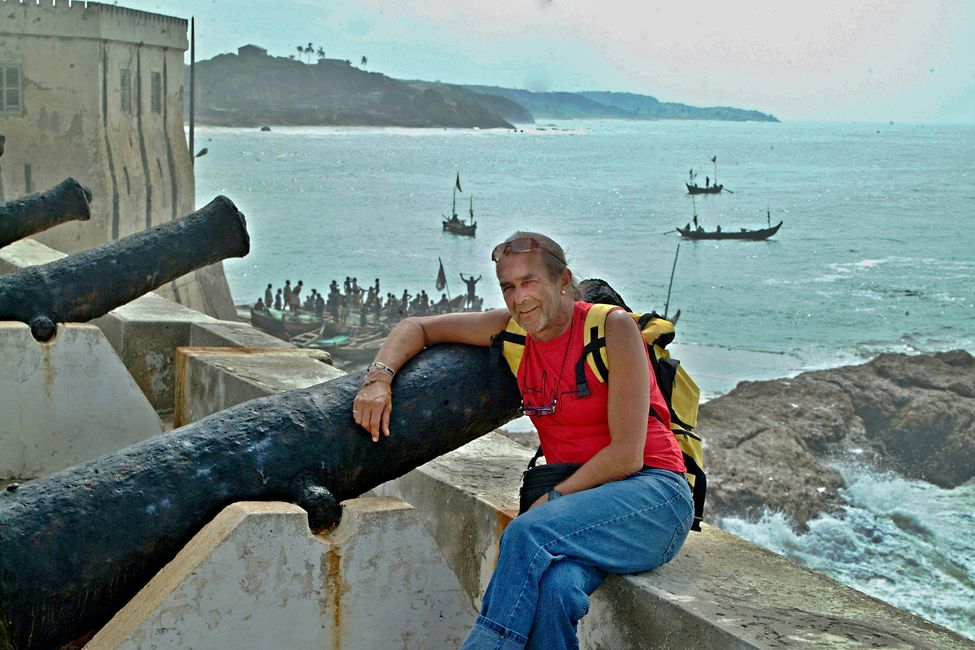
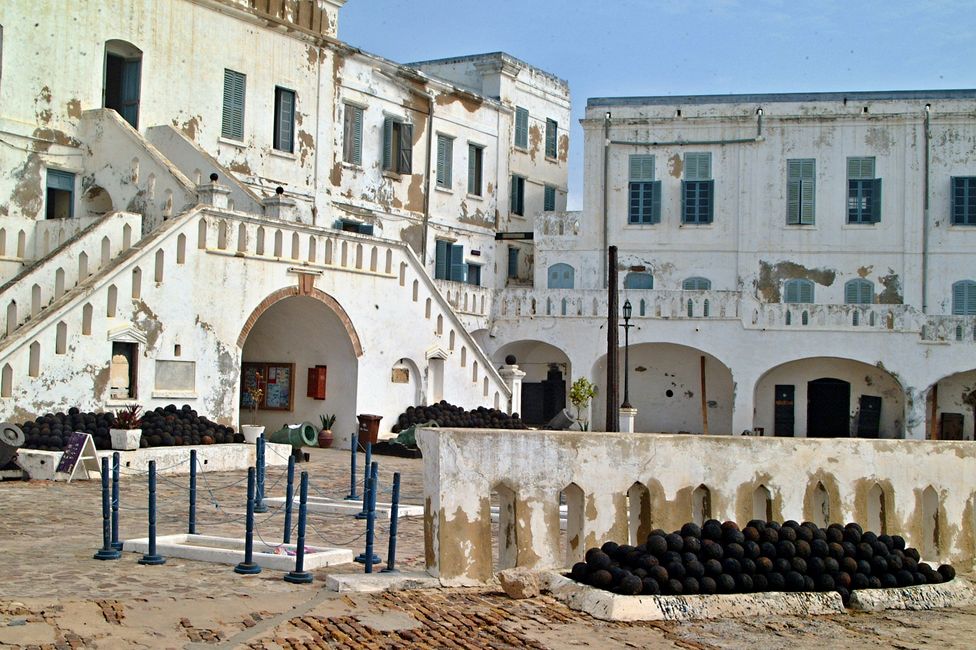
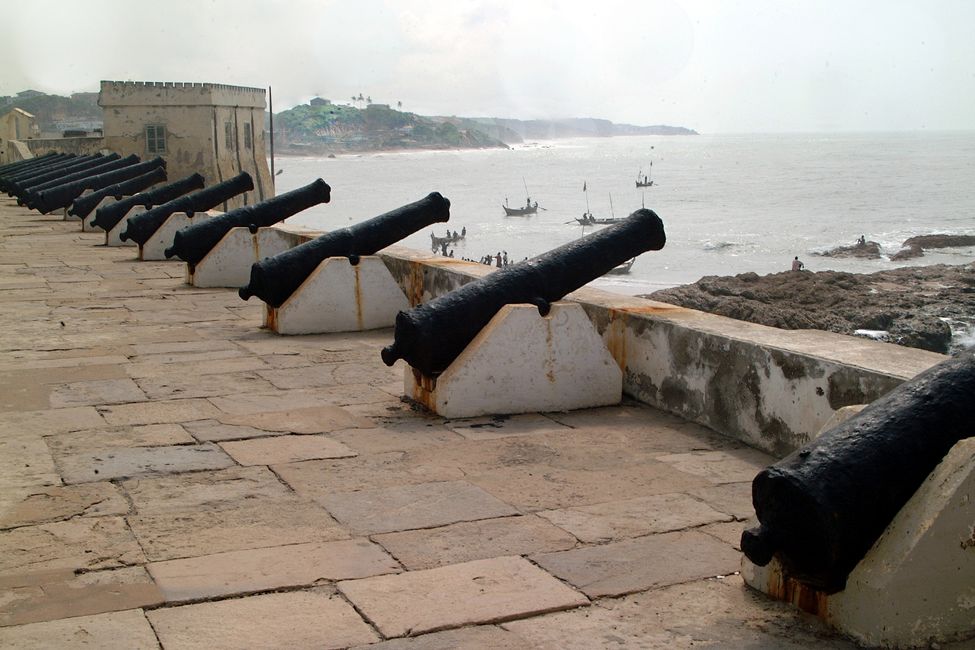
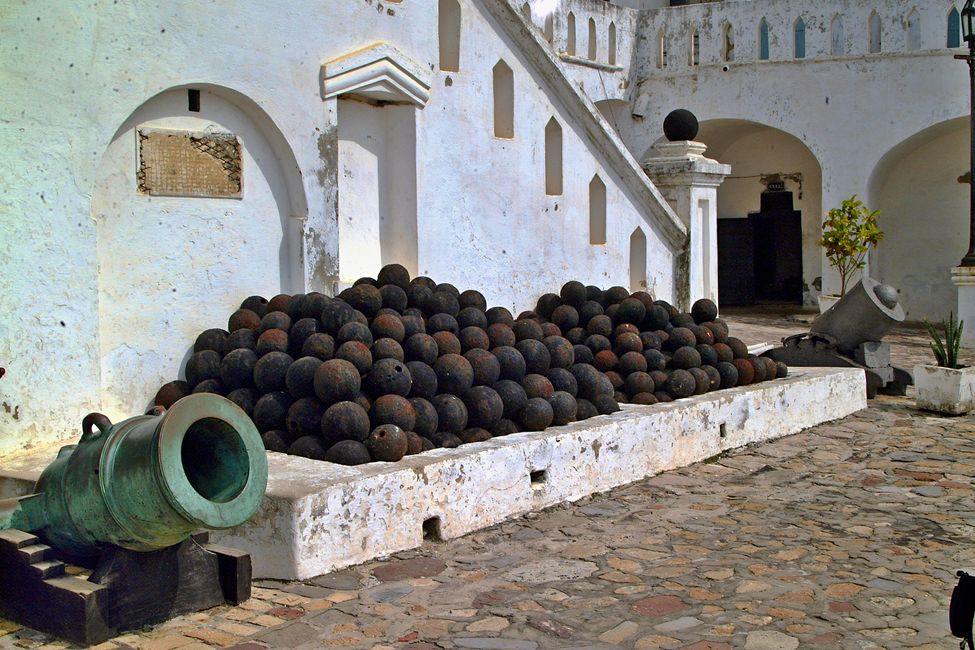

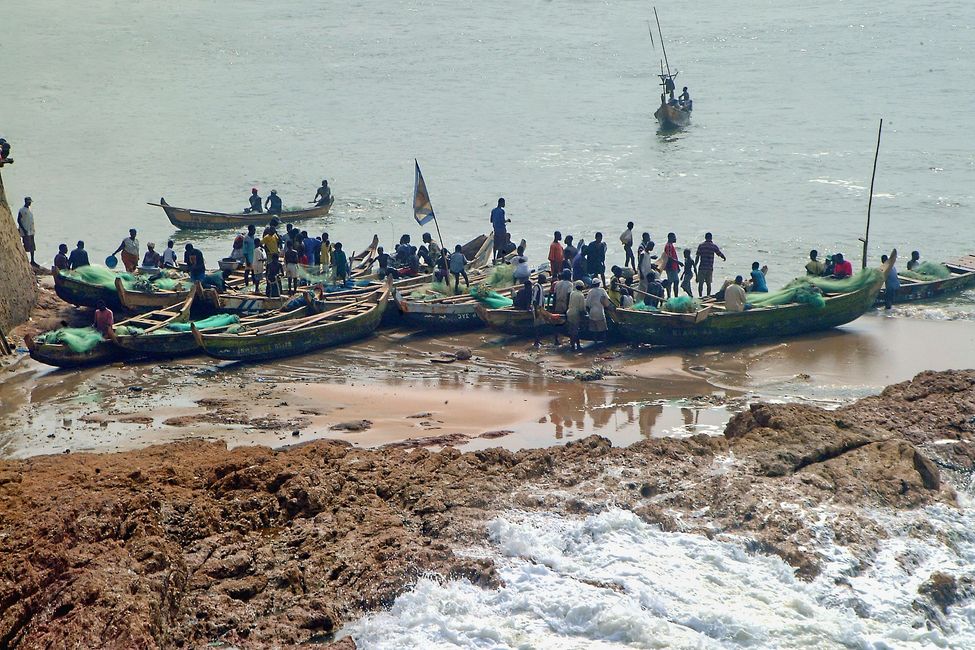
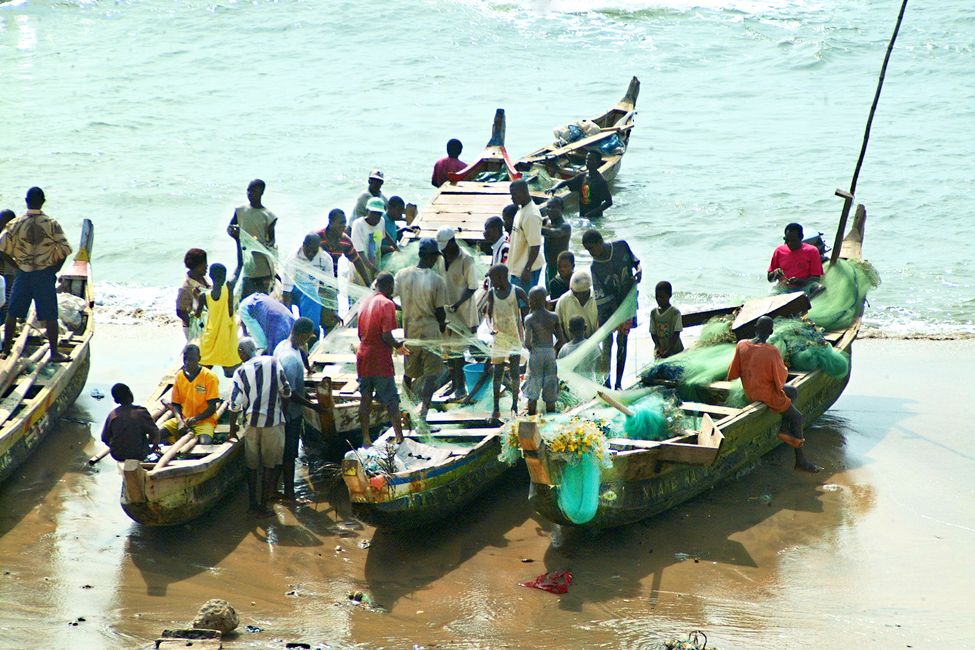
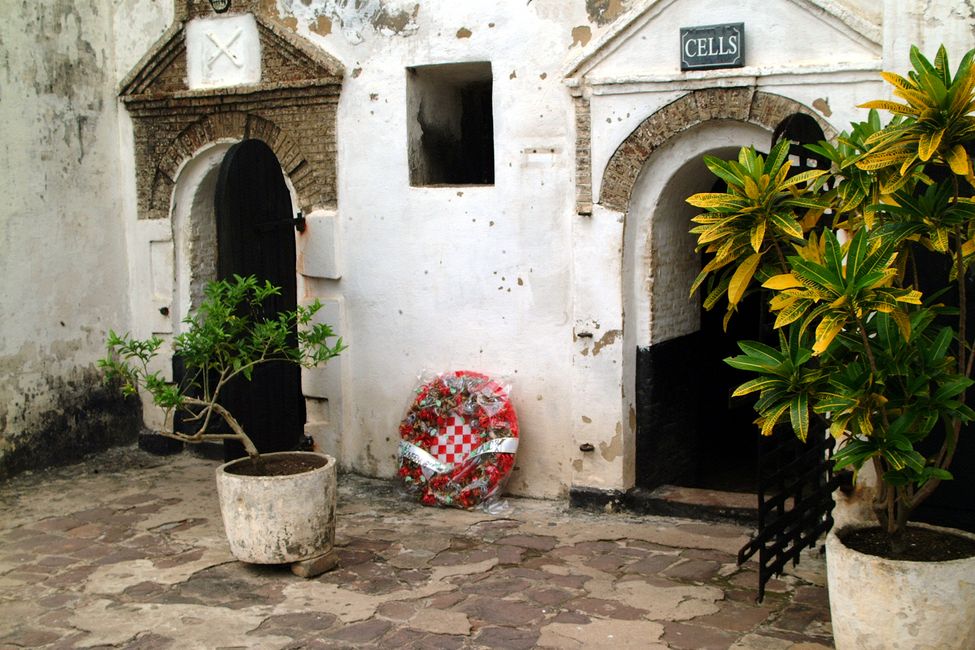
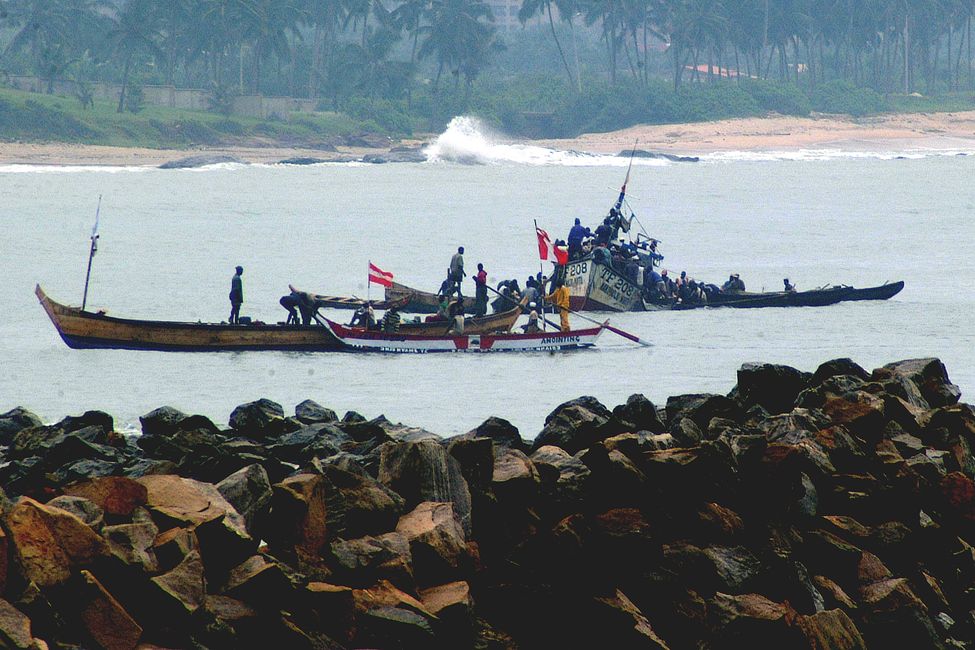
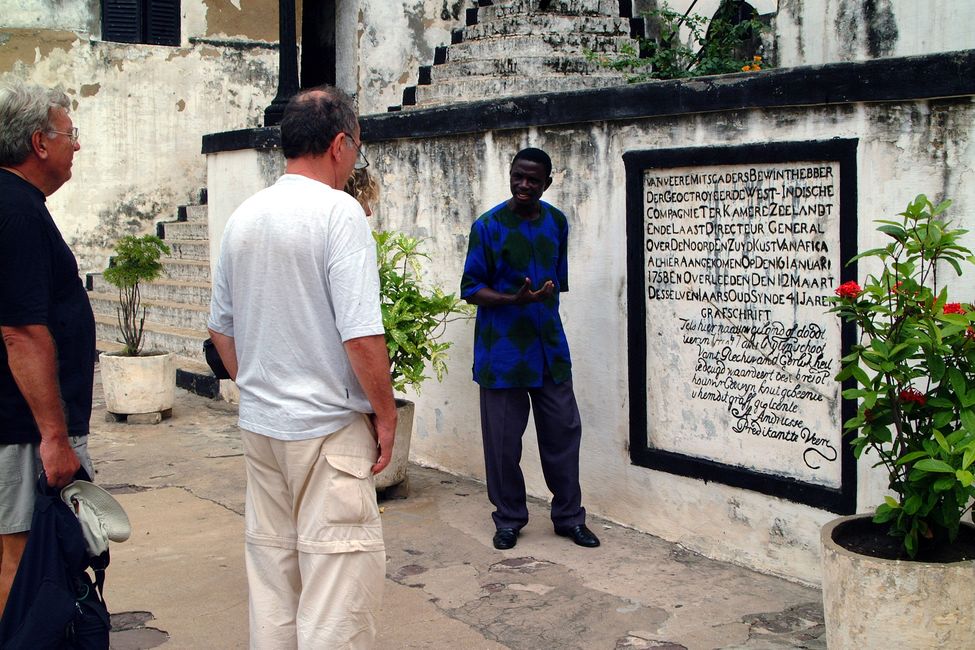
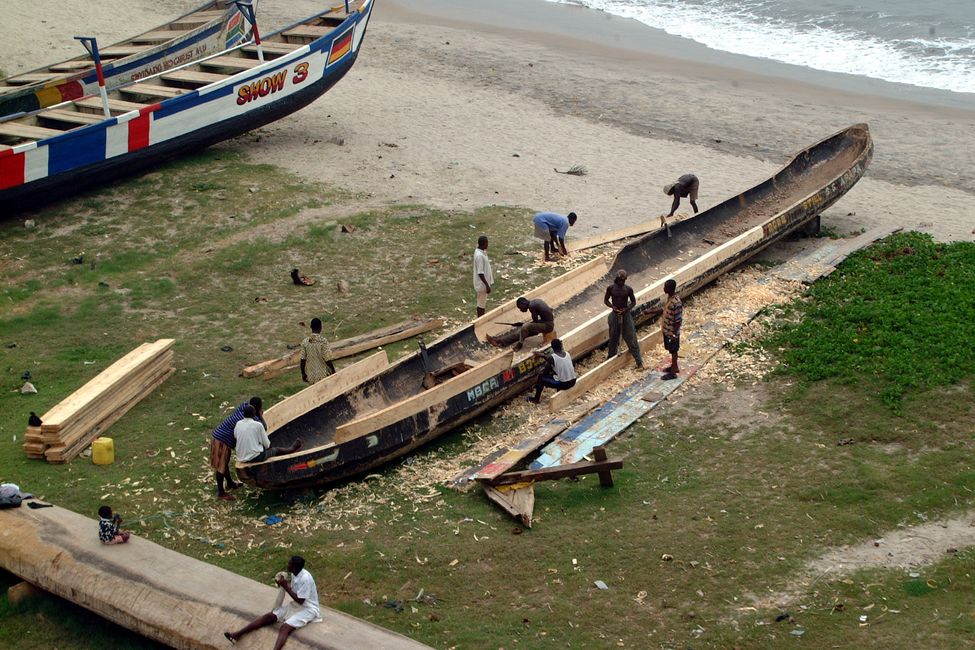
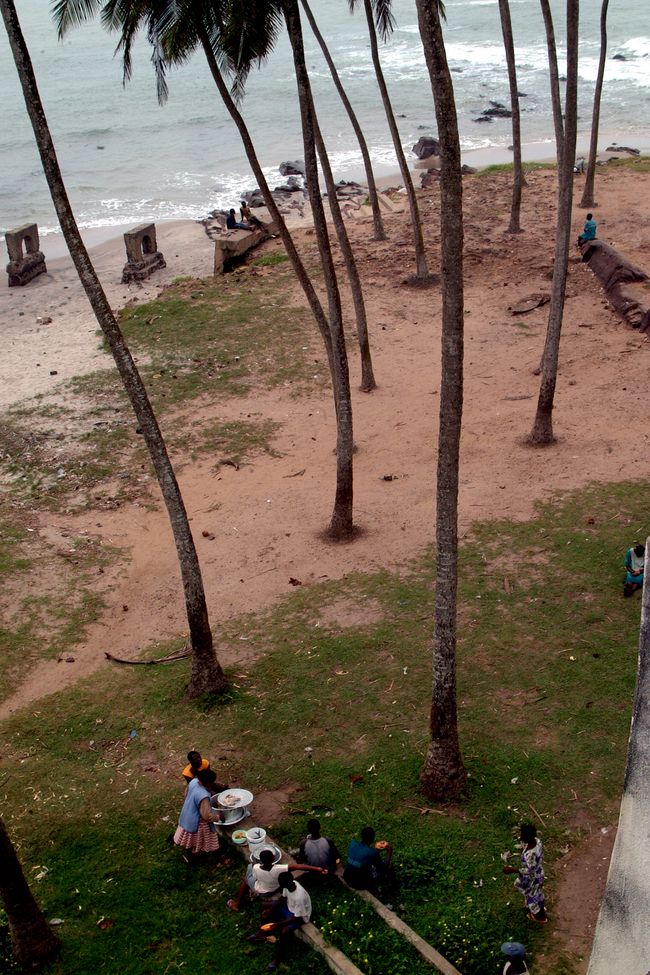
The Cape Coast, a city in the center of the coast of Ghana. It is located on a low peninsula that juts into the Gulf of Guinea of the Atlantic, about 120 km southwest of the Ghanaian capital Accra.
Although the inhabitants of these regions are generally considered to be Fantis (Akan) today, these early coastal states of the western and central parts of the Gold Coast (perhaps with the exception of Sabou) were probably largely Guang foundations, in which the Akan cultural element penetrated and flourished later. Ogua was primarily a fishing village. It was only with the appearance of the Portuguese, who established a factory at Cabo Corso, as they called it (literally "short cape"), that the trade between Europeans and the interior of the country became an essential source of livelihood. The Portuguese were followed at Cabo Corso by the British, Dutch, Swedes, and Danes, of whom the British were eventually able to establish a permanent foothold in 1664. From 1664 to 1877, Cape Coast was the capital of the British possessions on the Gold Coast (later the British protectorate, from 24 July 1874 the colony) and the seat of the British governor.
An important monument of the city is Cape Coast Castle, initially founded as a trading post, then the starting point for the shipping of the majority of slaves to the "New World".
In the 15th century, the Portuguese established a post on the site, and in the 16th century, the British arrived. The city, one of the oldest in the country, grew around Cape Coast Castle, which was built by the Swedes in 1655 and taken over by the British in 1663. Cape Coast became a roadstead port and was the British trading and administrative capital of the Gold Coast until 1877 when Accra became the capital. Cape Coast began in the early 20th century as the railways were built from Sekondi and Accra inland to Kumasi.
The port operation of Cape Coast ceased to function with the opening of the Tema port in 1962. Nevertheless, the city retained its importance as an educational center. There are several secondary schools and the University of Cape Coast (established in 1962) located there.
답변
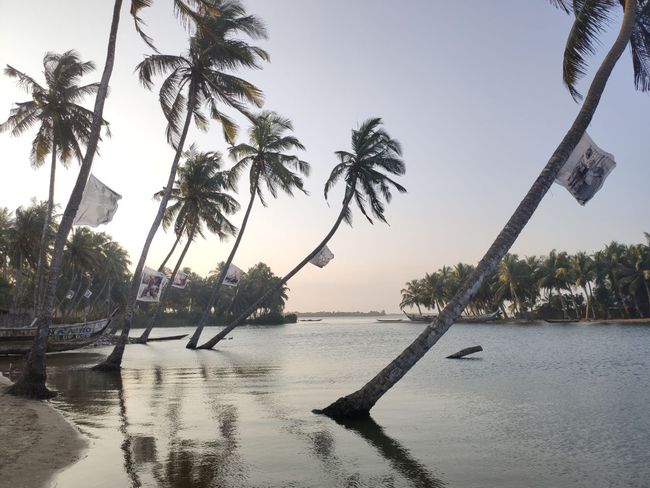
가나 여행 보고서
